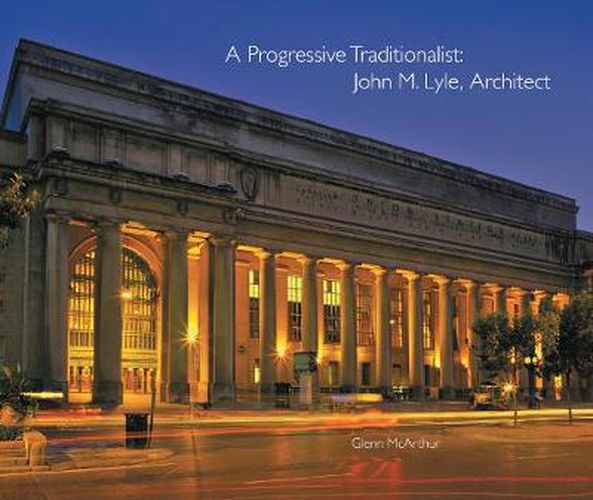Readings Newsletter
Become a Readings Member to make your shopping experience even easier.
Sign in or sign up for free!
You’re not far away from qualifying for FREE standard shipping within Australia
You’ve qualified for FREE standard shipping within Australia
The cart is loading…






John M. Lyle (1872-1945) was an anomaly among architects: a Beaux-Arts classicist who nevertheless found much inspiration in modernism, allowing his own traditionalist practice to be affected in form and detail by a brave new emphasis on minimalism and indigenous influence. His early works, including countless legendary banks and residences, as well as the iconic Union Station and Royal Alexandra Theatre in Toronto, are exemplary of Beaux-Arts classicism; his later bank designs in Halifax, Calgary and Toronto display a modernist shift and see him championing an idiosyncratic and authentic regional consciousness.
A Progressive Traditionalist traces this aesthetic trajectory through the tumultuous first half of the twentieth century, documenting Lyle’s training at Yale and in Paris, his early career in New York and his later success in Toronto, including his tireless efforts to raise the profile of the profession through teaching, writing, curating and lecturing, and his attempts to pave the way for a uniquely Canadian architecture.
$9.00 standard shipping within Australia
FREE standard shipping within Australia for orders over $100.00
Express & International shipping calculated at checkout
John M. Lyle (1872-1945) was an anomaly among architects: a Beaux-Arts classicist who nevertheless found much inspiration in modernism, allowing his own traditionalist practice to be affected in form and detail by a brave new emphasis on minimalism and indigenous influence. His early works, including countless legendary banks and residences, as well as the iconic Union Station and Royal Alexandra Theatre in Toronto, are exemplary of Beaux-Arts classicism; his later bank designs in Halifax, Calgary and Toronto display a modernist shift and see him championing an idiosyncratic and authentic regional consciousness.
A Progressive Traditionalist traces this aesthetic trajectory through the tumultuous first half of the twentieth century, documenting Lyle’s training at Yale and in Paris, his early career in New York and his later success in Toronto, including his tireless efforts to raise the profile of the profession through teaching, writing, curating and lecturing, and his attempts to pave the way for a uniquely Canadian architecture.